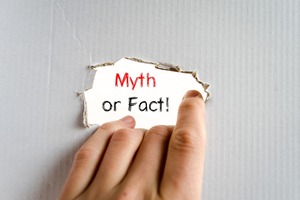Telephone Consumer Protection Act
The government has put a number of safeguards in place to protect consumers from abusive actions by debt collectors. Collection agencies do have the right to attempt to collect debts, but there are certain actions they cannot take, and if they fail to abide by the limitations, consumers have a right to take legal action – even if the debt is legitimate.
How the Telephone Consumer Protection Act Protects Consumers
The Telephone Consumer Protection Act (TCPA) was passed by Congress in 1991 with the goal of protecting consumers from auto-dialed calls. It is illegal for anyone in the United States to make a call using an automatic dialing system or pre-recorded voice to a cellular telephone. Penalties start at $500 per call and can be as high as $1500 per call.
Though the law is intended to protect against all auto-dialed calls, it applies to calls from debt collectors to your cell phone, as long as the call is auto-dialed and you have not already given the collector express permission to place the call.
Did I Give Express Consent?
Express consent might have been given during the application process for the loan. If you use your cell phone number on the loan application, you have given express consent, so keep this in mind when you are applying for a loan or making a purchase in which you use credit to buy.
You might be wondering how the collector even has your cell number if you did not provide it when applying for the loan. Chances are the agency searched for it online or they made note of it when you returned a previous call using your cell phone. Debt collectors will go to great lengths to gather and use against you all the information they possibly can.
How Do I Know a Call was Made Using an Auto Dialer?
In most cases, you won’t know for sure. However, most debt collection calls are placed by auto-dialers and if you receive one, you can assume in most cases it was the work of an auto-dialer. Sometimes, there is a short delay after you pick up the call or hear the message.
Keep in mind this law applies only to cell phones, so if you receive an auto-dialed call on a landline, while it might violate another federal law such as the Fair Debt Collection Practices Act, it does not apply in this case.
To violate fair debt collection practices, a debt collector’s actions must qualify as harassment. But in the case of the TCPA, this is not so. Any call made to your cell phone by an auto dialer is against the law – even if the caller is friendly and offers assistance. These guidelines also apply to the original lender – the call doesn’t even need to be from an official debt collector.
What Should I Do If I Believe a Debt Collection Call Violates the TCPA?
First, save the number and any messages received on your cell. If possible, save them to your computer. Your cell phone bill should also have a record of the calls you received. Download or request a copy of that, as well.
Once you have the information saved, we can help you determine if the call(s) you received breaks the law. In addition to violations of the TCPA, messages left by debt collectors might also be illegal. There are complex guidelines governing what debt collectors can and cannot do, and if anything a collector says or does violates the law, it can affect the situation in a way that is beneficial to you. Many debt collectors assume they are in control and you will not be aware of their limitations or will not take action if they cross the line – in reality, you have a right to be treated fairly and to take action if debt collectors cross the line.
If you would like to know more or believe calls to your cell phone violate the TCPA, contact the Law Offices of Robert M. Geller at 813.254.5696 to schedule a consultation or to discuss your situation.



























![Signs That You May Need to File Bankruptcy [Infographic]](https://djml3wkzi26ea.cloudfront.net/wp-content/uploads/2021/01/signs-chap7-v-chap13.jpg)
![How To File for Bankruptcy [Infographic]](https://djml3wkzi26ea.cloudfront.net/wp-content/uploads/2020/07/bankruptcy-steps-infographic-web.jpg)










